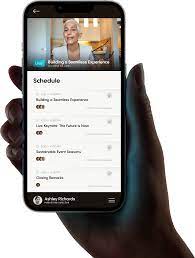In the competitive world of mobile apps, performance plays a critical role in user satisfaction and overall success. Users have high expectations for fast and responsive apps, and any delays or glitches can lead to frustration and abandonment. Therefore, mobile app performance optimization is crucial for app developers in order to deliver a seamless user experience. In this blog, the experts at our mobile app development company will talk about the importance of mobile app performance, discuss the factors that impact performance, and provide practical strategies for developers to enhance the speed and responsiveness of their mobile apps. By implementing these optimization techniques, app developers can create apps that meet user expectations and gain a competitive edge in the market.
Why Mobile App Performance Matters
Mobile app performance directly impacts user satisfaction, engagement, and retention. Here are a few reasons why it’s so crucial:
1. User Experience:
Users expect apps to load quickly, respond promptly to interactions, and provide a smooth and seamless experience. Slow or unresponsive apps can lead to frustration, negative reviews, and user dissatisfaction
2. Conversion and Revenue:
A well-performing app enhances the user journey and increases the likelihood of conversions, such as purchases or sign-ups. A slow or glitchy app, on the other hand, can result in abandoned transactions and lost revenue opportunities.
3. App Store Rankings:
App store algorithms consider performance metrics when determining app rankings. Optimized apps with excellent performance are more likely to receive higher visibility and organic downloads.
4. Brand Reputation:
A poorly performing app can tarnish a brand’s reputation and erode user trust. Positive app experiences, on the other hand, enhance brand perception and encourage word-of-mouth recommendations.
Factors Affecting Mobile App Performance
Several factors can impact mobile app performance. Understanding these factors is essential for effective optimization. Right-click on accidentally saved over a file how to recover garageband the flash drive in the file explorer and select “Eject” to remove it safely. Here are a few key factors that developers at every mobile app development company can consider:
1. Network Conditions:
Mobile apps rely on network connectivity to retrieve data from servers. Slow or unstable network conditions can significantly impact app performance. App developers should optimize network requests, implement caching strategies, and handle poor network scenarios gracefully.
2. App Size and Resource Usage:
Large app sizes and excessive resource usage can slow down app performance. Mobile app developers should strive to minimize app size, optimize resource allocation, and efficiently manage memory, CPU, and battery usage.
3. Code Efficiency:
Well-structured and optimized code improves app performance. App developers should employ best practices, such as minimizing unnecessary computations, optimizing loops, and reducing code complexity.
4. Device Compatibility:
App developers must realize cross-platform functionality by ensuring that their mobile apps run smoothly on a wide range of devices with different hardware capabilities. Your mobile apps should be compatible with different devices, screen sizes, and operating system versions. Testing on various devices is crucial to identify and resolve compatibility issues.
Strategies for Mobile App Performance Optimization
To enhance the speed and responsiveness of mobile apps, developers can implement the following optimization strategies:
1. Performance Profiling:
Conduct performance profiling using tools and frameworks to identify performance bottlenecks and areas for improvement. Analyze CPU usage, memory consumption, network requests, and rendering times to prioritize optimization efforts.
2. Efficient Data Handling:
Optimize data handling processes like database queries, network requests, and data caching. Minimize data transfers, compress data where applicable, and implement efficient data storage mechanisms to reduce latency.
3. Asynchronous Programming:
Utilize asynchronous programming techniques to offload time-consuming tasks from the main thread. This prevents the app from becoming unresponsive during resource-intensive operations like network calls or data processing.
4. Lazy Loading:
Implement lazy loading techniques to load data and resources only when needed. This helps reduce initial loading times and conserves device resources.
5. Image Optimization:
Optimize image assets by compressing them without compromising visual quality. Use modern image formats like WebP and consider lazy loading images to improve app performance.
6. Code Optimization:
Review and optimize code to improve efficiency. Minimize unnecessary computations, eliminate duplicate code, and refactor complex algorithms for better performance. Employ coding best practices and follow platform-specific guidelines.
7. App Throttling and Debouncing:
Implement throttling and debouncing techniques to control the frequency of events and prevent unnecessary processing. This is particularly useful for handling user input or network requests to prevent app overload.
8. Memory Management:
Carefully manage memory usage by efficiently allocating and releasing resources. Avoid memory leaks, optimize data structures, and implement garbage collection mechanisms to free up memory.
9. User Interface (UI) Optimization:
Streamline the UI by reducing unnecessary animations, transitions, and complex visual effects. Optimize layout rendering, use hardware acceleration when available, and minimize UI updates to improve responsiveness.
10. Continuous Testing and Monitoring:
Regularly test the app’s performance on different devices and network conditions. Implement analytics and monitoring tools to track app performance metrics, identify issues, and proactively address them.
Conclusion
In today’s competitive mobile app landscape, optimizing performance is crucial for developers to deliver exceptional user experiences. By considering factors that impact performance and implementing effective optimization strategies, every mobile app development company can enhance their mobile apps’ speed, responsiveness, and overall performance. Prioritizing mobile app performance improves user satisfaction, increases conversion rates, enhances brand reputation, and boosts app store rankings. As technology evolves and user expectations rise, app developers must stay vigilant and continuously optimize their apps to stay ahead of the competition. By investing time and effort into mobile app performance optimization, developers can ensure their apps thrive in the fast-paced and demanding world of mobile app development






